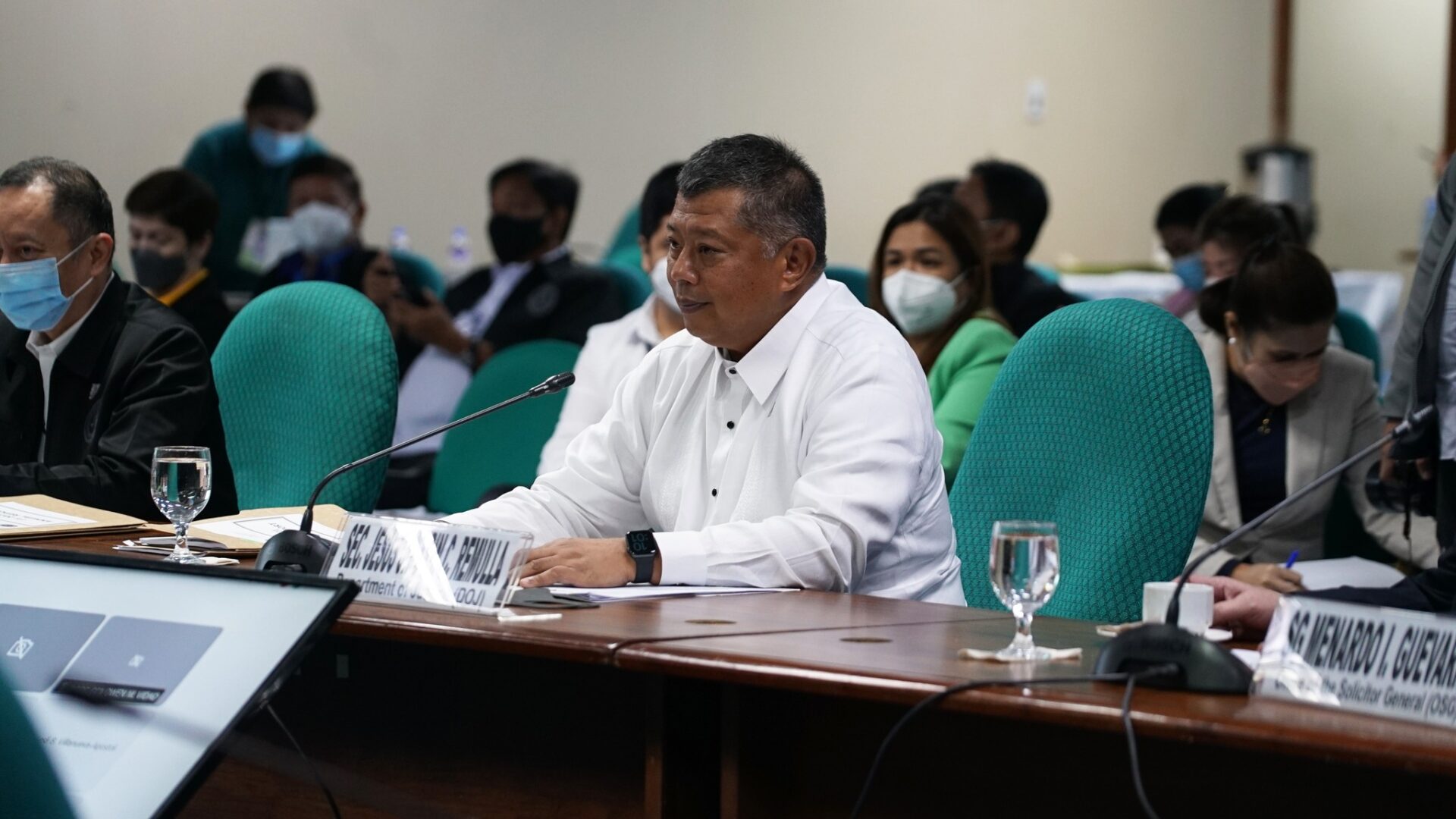Justice Secretary Crispin Remulla vowed to deliver the best human rights protection through “real justice in real time”.
Speaking before the 51st Regular Session of the UN Human Rights Council — Enhanced Interactive Dialogue on the Philippines in Geneva, Switzerland on Wednesday night (Manila time), Remulla said the Department of Justice is serious about human rights and will inject it into every step of the country’s law enforcement and judicial processes.
“This assures that no one is left behind and that the wheels of justice truly serve all without distinction. It makes for a solid foundation of a civilized, democratic society — which is at the heart of Filipino culture, identity, and history,” he said.
He, however, appealed for the UNHRC to trust that the Philippine government knows best what is good for its people and to work with the government to realize the vision of human rights and justice for all.
Highlighting the gains made by the present administration during its first 100, Remulla said the Philippines, “through the unifying leadership of President Ferdinand R. Marcos Jr. is undertaking transformational reform of its justice and law enforcement sectors.”
“It is doing so to ensure the rule of law and the promotion and protection of the human rights of all its citizens. On the ground, through process-driven solutions to problems we continue to identify and seek to solve,” he said in his 5-minute speech before the UNHRC.
Consensus builder
President Marcos, he said, is a consensus-builder with a deeply human approach to law enforcement and the anti-illegal drug campaign.
Taking on a new pathway toward an inclusive and empowering ecosystem of social justice, Remulla said President Marcos has refocused the anti-illegal drug campaign by dealing with the source of the problem — arresting and punishing criminal masterminds, not the small-scale users on the street.
The President, he added, also emphasizes the need for rehabilitation, prevention, education, and assistance to victims and their families.
“These targeted and bold measures aim to change the culture of our judicial and law enforcement system, which have produced certain flaws and delays in the carriage of justice. They are also in line and, in some cases, go beyond international standards and best practices,” Remulla said.
As part of an internal disciplinary program that has been enacted to correct the misdeeds of erring law enforcers who abuse their power and public trust, he reminded the Philippine National Police that “the use of force must always be reasonable, accountable, justifiable, and only utilized when necessary.”
Remulla cited the Department of Justice’s close coordination with the Department of the Interior and Local Government and the Supreme Court for effective sharing of information, planning, and implementation of joint initiatives.
He also shared the country’s ongoing effort to decentralize the congested prison system.
“I am personally committed to continuing regular releases and aim to have 5,000 persons released by June next year,” he said, referring to the release of 371 persons deprived of liberty in September this year— many of them had already served their sentences, if not for procedural oversights.
He told the UNHRC that the Philippine government is reinforcing the interfaces between prosecutors and law enforcement by streamlining investigative and accountability processes and having them work together during case build-up investigation.
“This will improve the quality of cases that reach the courts, chances of success in prosecution, the certainty of punishment, and deterrence against criminality,” Remulla added.
As the DoJ continues to invite witnesses, and families of victims to come forward and provide information and file appropriate cases that will help the Review Panel in the investigations and secure justice for victims’ families, he assured that the agency is ready to provide needed support and security to witnesses, with a more comprehensive witness protection program so that fear will not impede justice.
UN acknowledgment
Meanwhile, UN Member States acknowledged the Philippines’ constructive engagement with the international community on human rights, citing the progress by the government in strengthening domestic accountability mechanisms and institutions.
They also noted the important role of the Philippines’ independent Commission on Human Rights.
Remulla said the Philippine government’s commitments and programs on human rights will continue and be expanded.
“There is no turning back…it is a responsibility which the administration of President Marcos takes on with utmost seriousness, professionalism, and vigor,” he said.
What we ask of you, the Human Rights Council, and partners are to listen to us. To understand the context of our challenges — beside us on the ground, not above us from afar.”
Remulla is slated to lead a Philippine delegation in a dialogue on the International Covenant on Civil and Political Rights with the UN Human Rights Committee, and the 73rd Session of the Executive Committee of the High Commissioner’s Programme, organized by the UN Office of the High Commissioner for Refugees on 10-11 October 2022.
Alvin Murcia
